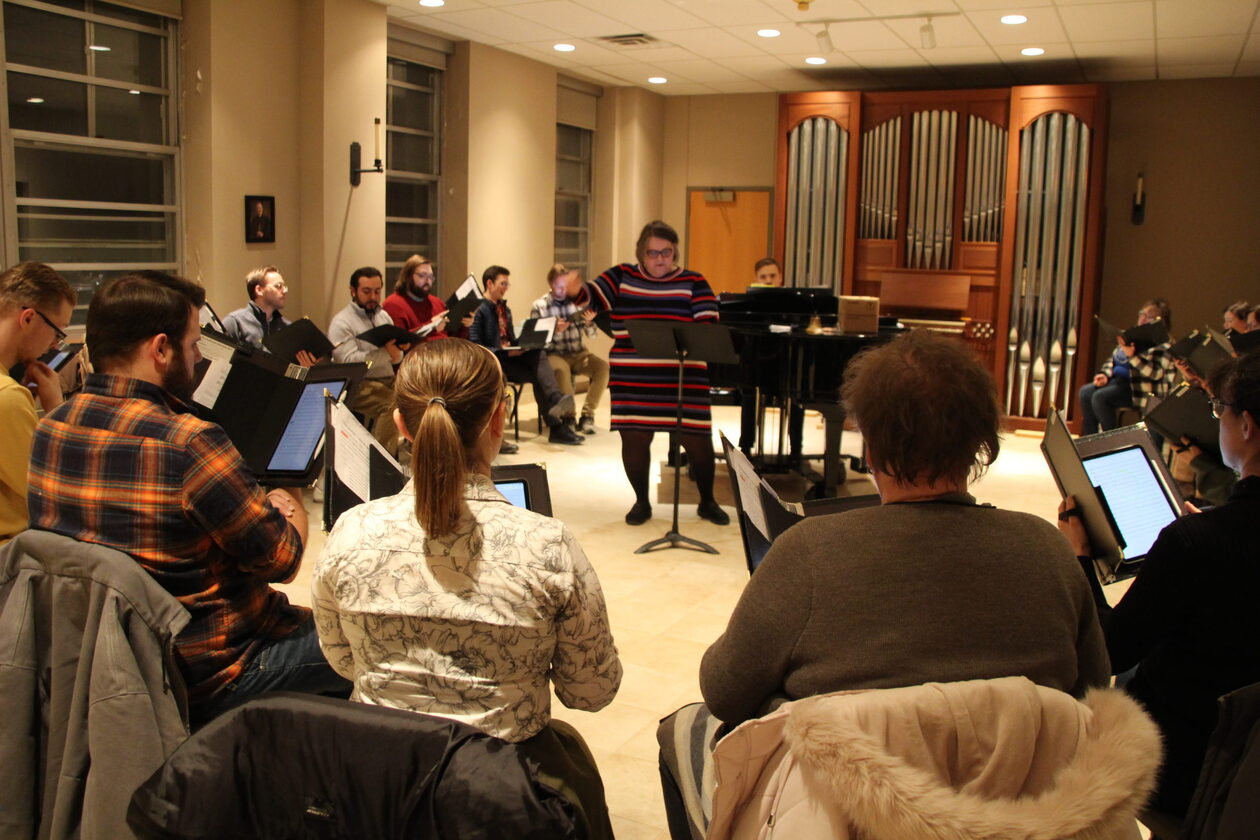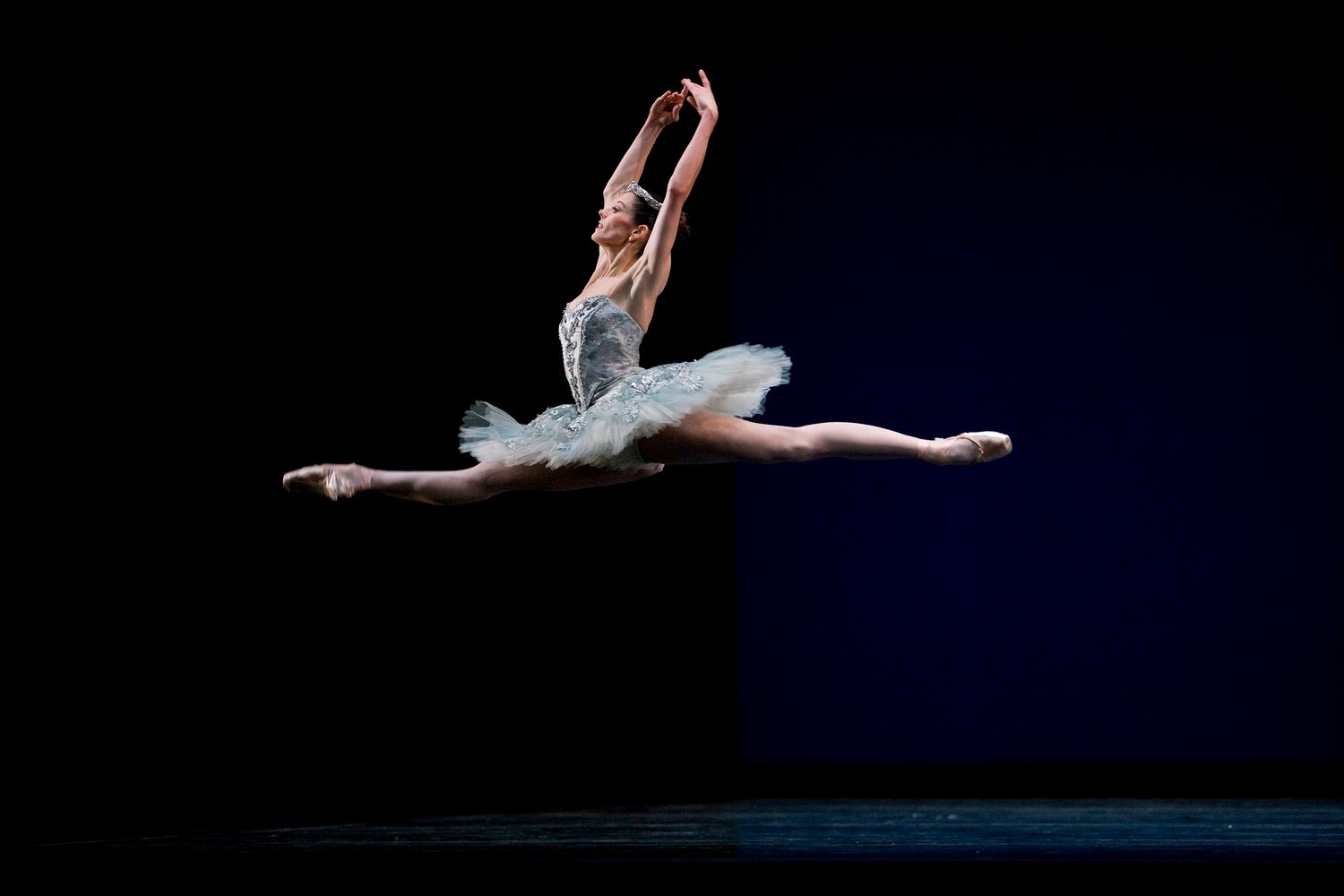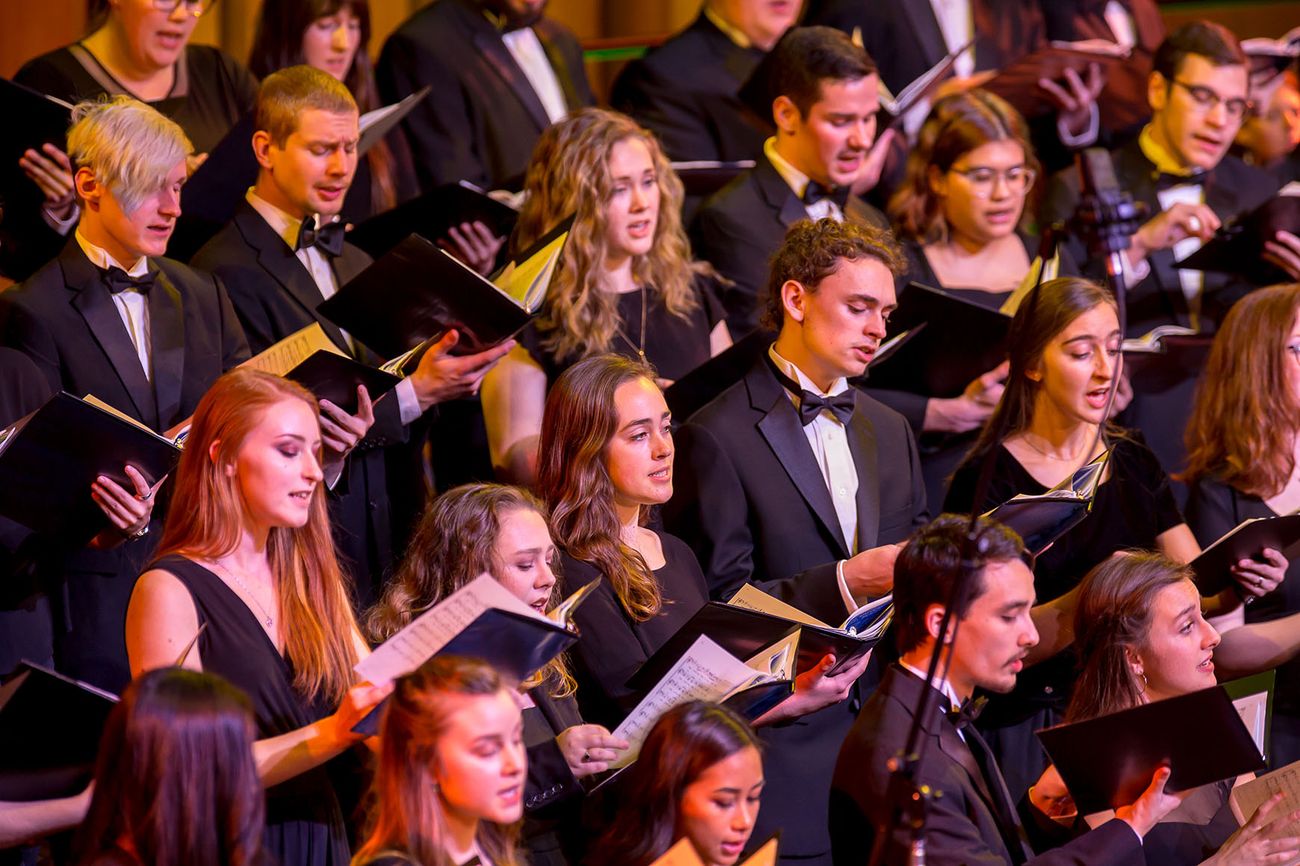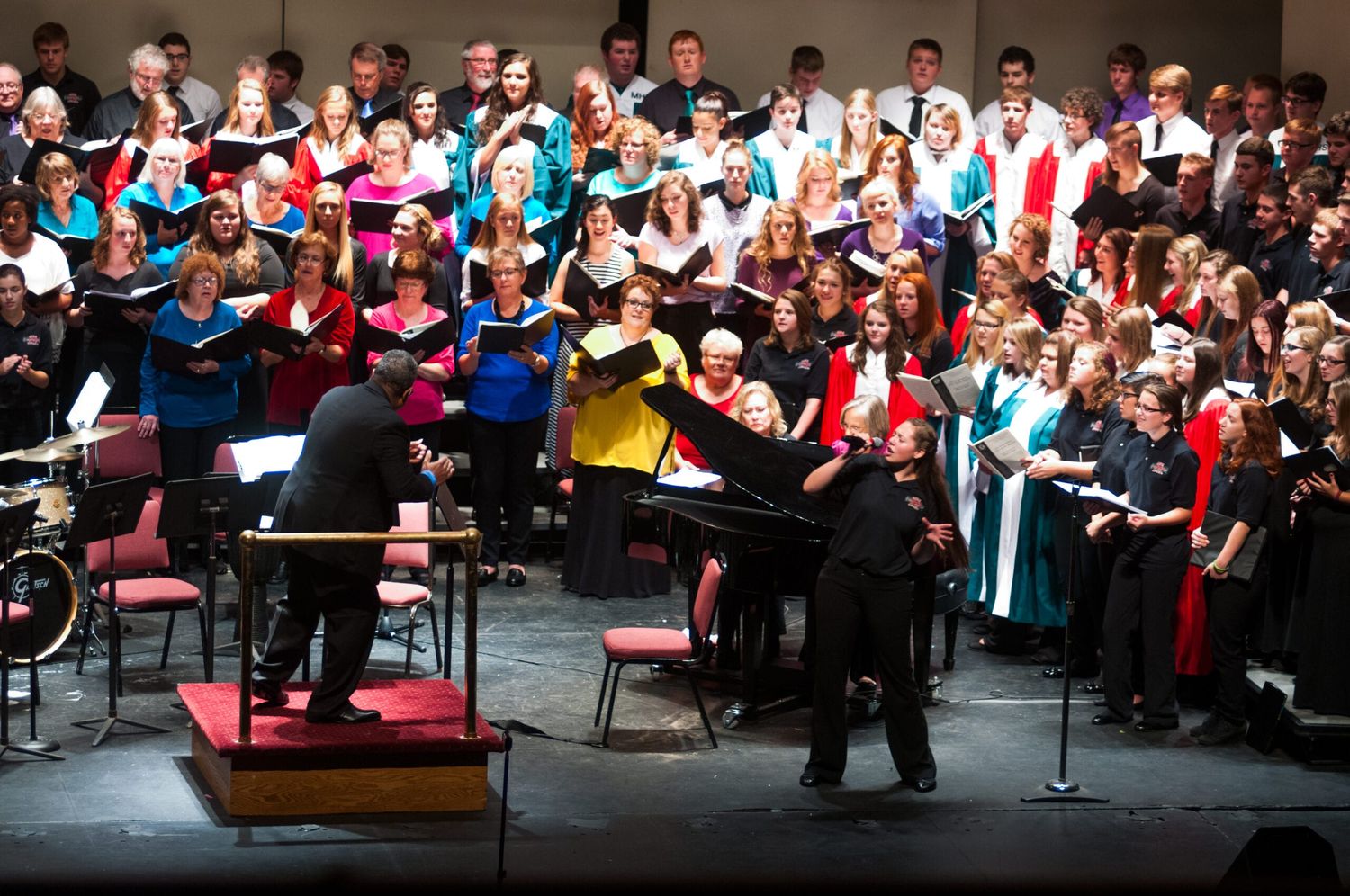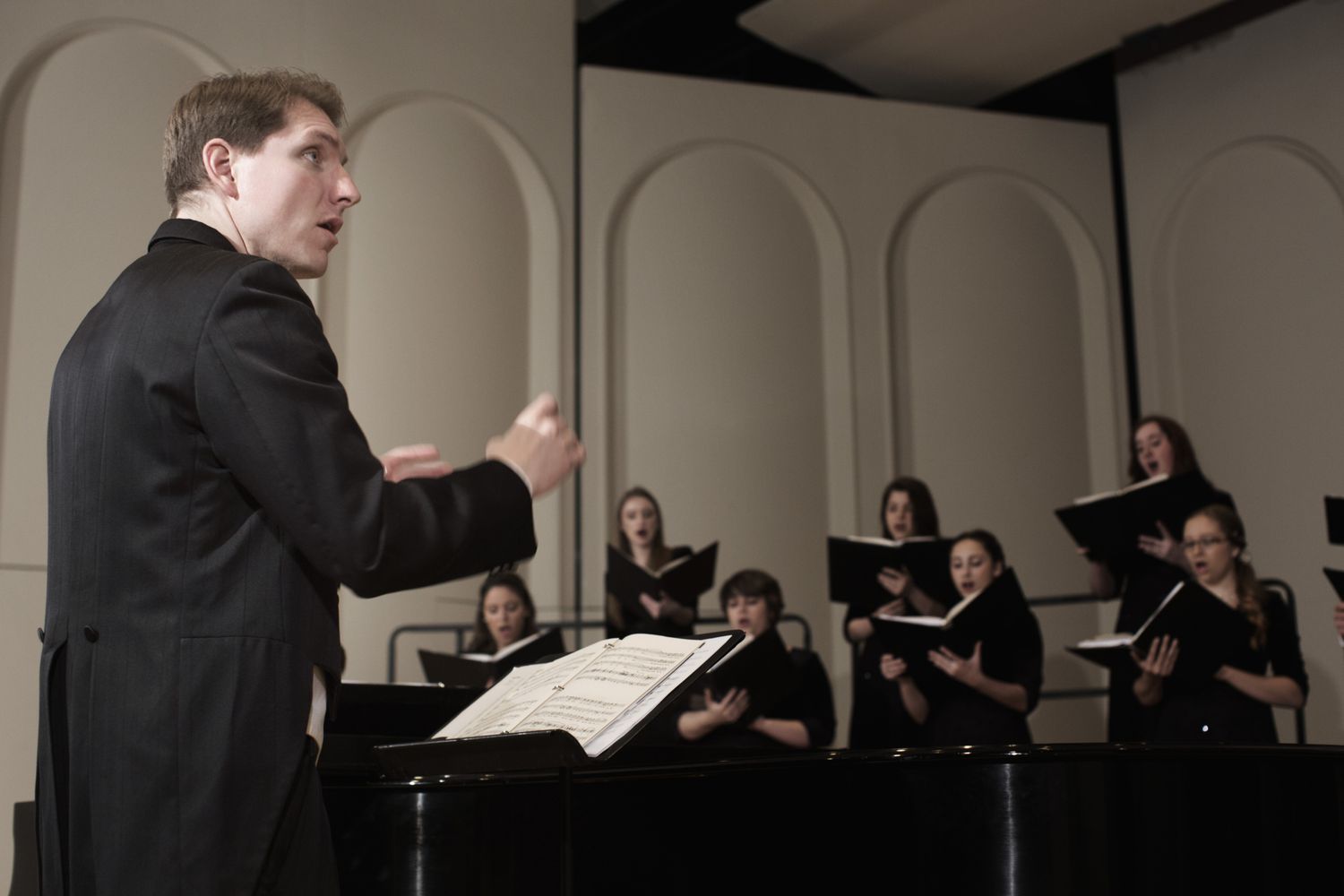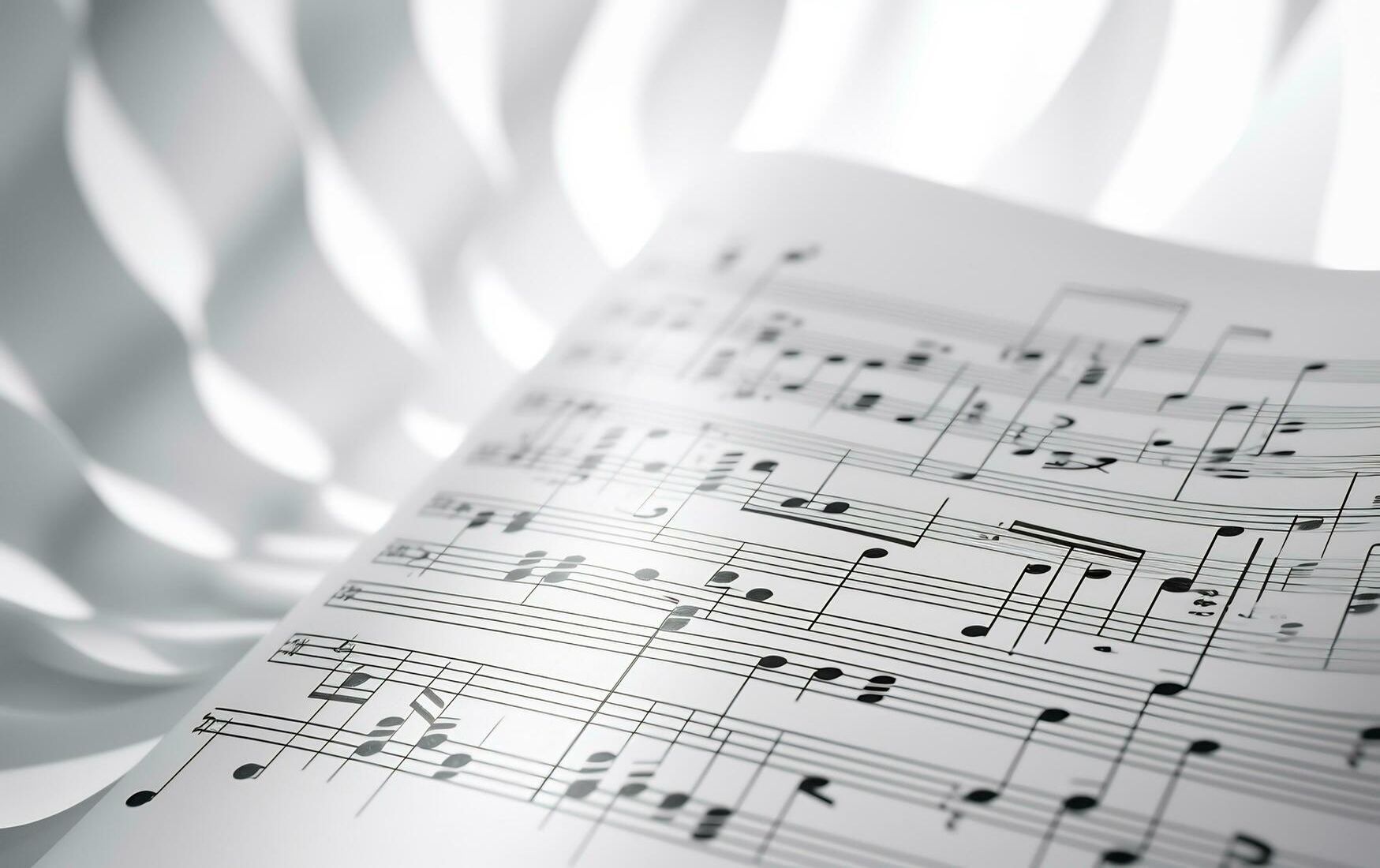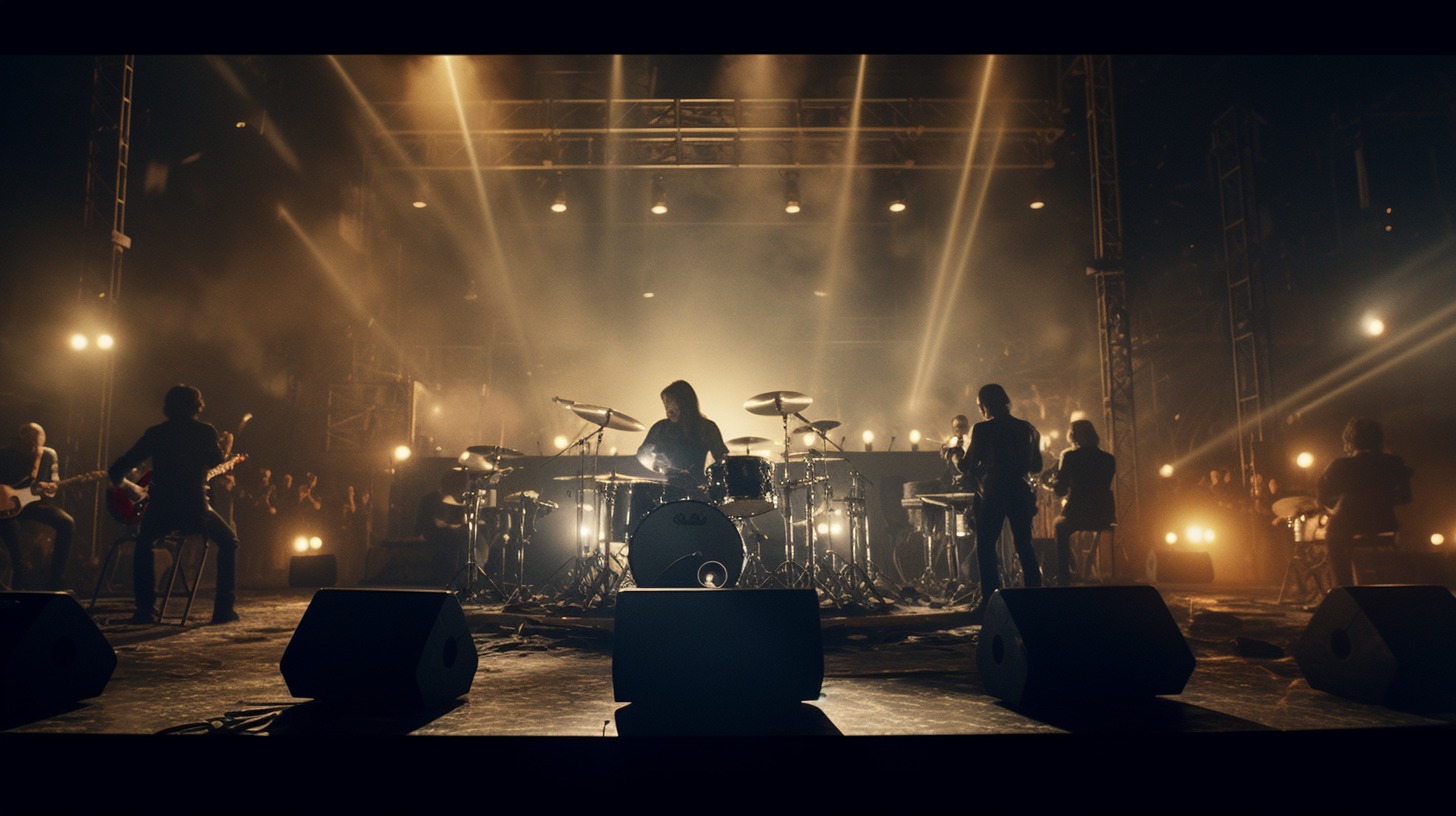Home>Production & Technology>Choir>What Is An All Men’s Choir Called?
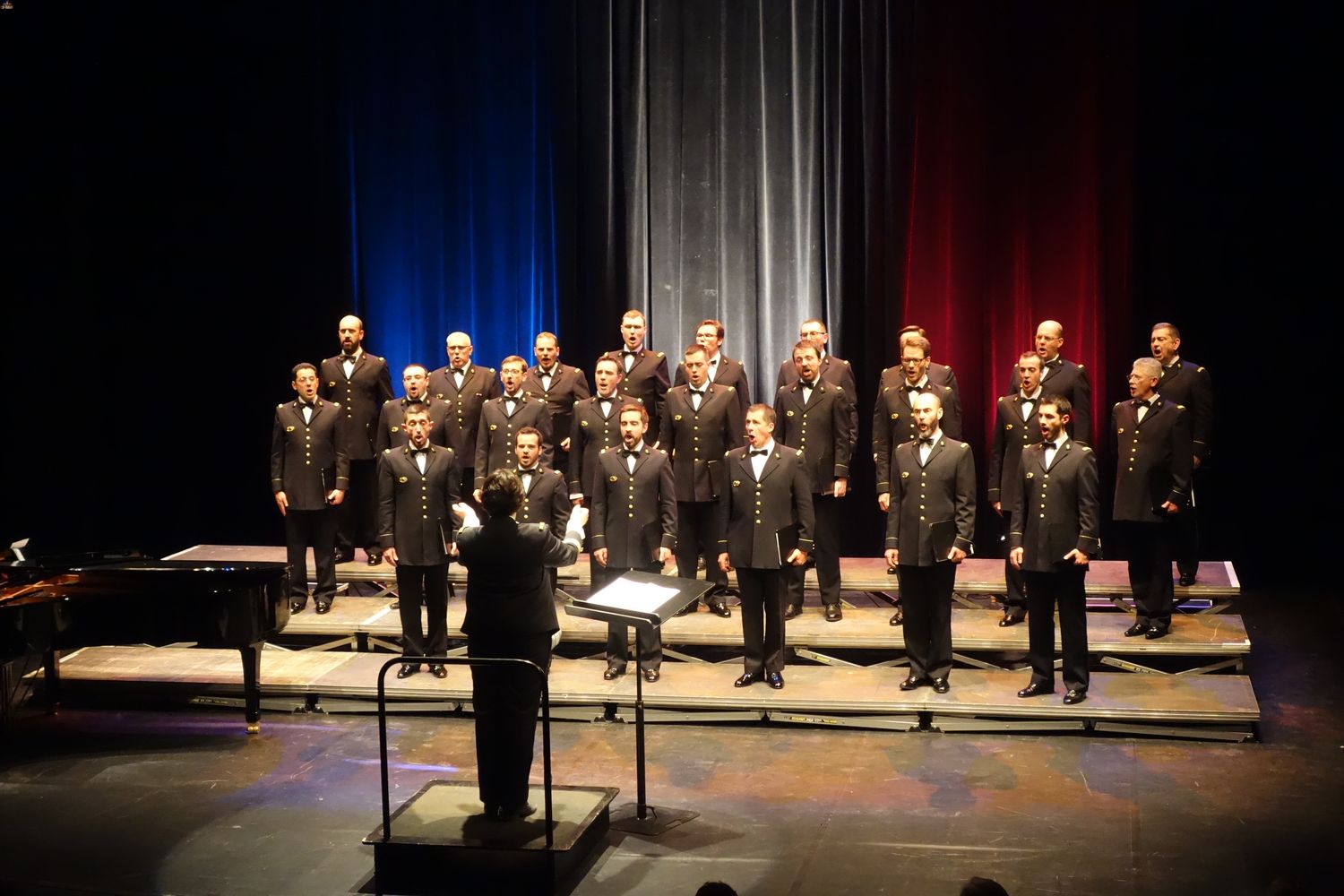

Choir
What Is An All Men’s Choir Called?
Published: February 23, 2024
Discover the name for an all men's choir and explore the rich tradition of male choral singing. Learn more about the history and significance of choirs in various cultures.
(Many of the links in this article redirect to a specific reviewed product. Your purchase of these products through affiliate links helps to generate commission for AudioLover.com, at no extra cost. Learn more)
Table of Contents
Introduction
When it comes to the world of choral music, the resonant harmonies of an all men's choir hold a special place. The rich timbre of male voices blending in perfect unison creates a powerful and emotive musical experience. But what exactly is an all men's choir, and why does it hold such significance in the realm of vocal music?
An all men's choir, as the name suggests, is a vocal ensemble comprised solely of male singers. These choirs typically encompass a wide range of vocal parts, including countertenor, tenor, baritone, and bass, each contributing to the choir's distinct sound. The repertoire performed by all men's choirs varies widely, encompassing genres from traditional choral music to contemporary compositions.
The allure of an all men's choir lies not only in the captivating sound produced by male voices but also in the camaraderie and unity fostered among the singers. As they come together to rehearse and perform, these choirs create a sense of community and shared purpose, transcending individual voices to form a cohesive and harmonious whole.
In the following sections, we will delve deeper into the definition of an all men's choir, explore its historical significance, discuss the different types of all men's choirs, and highlight the myriad benefits they offer to singers and audiences alike. Through this exploration, we aim to shed light on the enduring appeal and cultural importance of these remarkable musical ensembles.
Definition of an All Men's Choir
An all men's choir, often referred to as a male choir, is a vocal ensemble exclusively composed of male singers. These choirs typically consist of singers spanning a wide vocal range, including countertenor, tenor, baritone, and bass. The distinct sound of an all men's choir is characterized by the rich and resonant timbre of male voices blending in perfect harmony. The vocal diversity within the ensemble allows for a broad spectrum of tonal colors, from the soaring heights of the tenor to the foundational depth of the bass, creating a captivating and dynamic sonic tapestry.
The repertoire performed by all men's choirs is incredibly diverse, encompassing a wide array of musical genres and styles. From traditional choral masterpieces to contemporary compositions, these ensembles showcase the versatility and adaptability of male voices in delivering compelling musical performances. Whether interpreting classical works by renowned composers or breathing new life into modern pieces, all men's choirs demonstrate a remarkable ability to engage and enthrall audiences with their vocal prowess.
Beyond the musical aspect, the formation of an all men's choir fosters a sense of camaraderie and unity among its members. The shared pursuit of musical excellence and the collaborative nature of choral singing create a unique bond within the ensemble. As the singers come together to rehearse and perform, they not only refine their vocal skills but also cultivate a deep sense of community and mutual support. This collective spirit infuses the choir's performances with an added layer of emotional depth and resonance, elevating the overall impact of their musical expression.
In essence, an all men's choir represents a celebration of male vocal artistry and musical collaboration. Through their distinctive sound, diverse repertoire, and communal ethos, these choirs continue to captivate audiences and uphold a cherished tradition of choral excellence.
Historical Significance
The historical significance of all men's choirs is deeply rooted in the rich tapestry of choral music history. Dating back centuries, male vocal ensembles have played a pivotal role in shaping the cultural and musical landscape across diverse civilizations. One of the earliest documented instances of men singing together can be traced to ancient Greece, where male choruses were integral to religious ceremonies, theatrical performances, and communal gatherings. The resonant power of male voices united in song held profound symbolic and emotional significance, serving as a means of collective expression and spiritual reverence.
During the medieval and Renaissance periods, the tradition of male choral singing continued to flourish, with the emergence of renowned vocal ensembles such as the all-male choirs of the Sistine Chapel in Rome. These choirs, comprised exclusively of male singers, were entrusted with the solemn task of performing sacred music within the hallowed confines of the Vatican, contributing to the enduring legacy of choral polyphony and vocal artistry.
The evolution of all men's choirs persisted through the Baroque and Classical eras, witnessing the composition of seminal choral works specifically tailored for male voices. Composers such as Johann Sebastian Bach and Wolfgang Amadeus Mozart crafted intricate choral compositions, harnessing the unique tonal qualities of male voices to convey profound musical narratives. The ethereal blend of tenor, baritone, and bass voices in these compositions epitomized the expressive depth and emotional resonance that all men's choirs could evoke, cementing their historical significance in the annals of choral music.
In the 19th and 20th centuries, the prominence of all men's choirs expanded globally, with male vocal ensembles becoming emblematic of cultural identity and national pride. From the stirring harmonies of Russian male choirs to the robust vocal traditions of Welsh male voice choirs, these ensembles became ambassadors of their respective musical heritages, captivating audiences with their evocative renditions of folk songs, hymns, and classical repertoire.
Today, the historical significance of all men's choirs endures as a testament to the enduring legacy of male vocal artistry and the profound impact of choral music on society. Through their timeless resonance and cultural heritage, these choirs continue to enrich the musical tapestry of humanity, perpetuating a tradition that transcends time and resonates with the collective spirit of generations past and present.
Types of All Men's Choirs
All men's choirs encompass a diverse array of vocal ensembles, each distinguished by unique characteristics and musical traditions. From traditional male voice choirs to contemporary a cappella groups, the world of all men's choral music offers a rich tapestry of vocal artistry. Here are several notable types of all men's choirs:
-
Traditional Male Voice Choirs: Rooted in the cultural heritage of regions such as Wales, Cornwall, and northern England, traditional male voice choirs are renowned for their robust and resonant sound. These choirs typically feature tenor and bass voices, with repertoire ranging from stirring hymns and folk songs to classical choral works. Their performances often evoke a sense of pride and nostalgia, reflecting the deep-rooted traditions of male choral singing.
-
Barbershop Quartets and Choruses: Embodying the close-harmony singing style of barbershop music, these ensembles consist of four male voices—tenor, lead, baritone, and bass—blending in intricate and tightly woven harmonies. Barbershop choirs and quartets are celebrated for their vibrant and spirited renditions of popular songs and traditional barbershop repertoire, characterized by ringing chords and seamless vocal interplay.
-
Contemporary A Cappella Groups: In the modern choral landscape, contemporary a cappella groups have surged in popularity, showcasing the versatility and innovation of male vocal ensembles. These groups often explore a wide range of musical genres, from pop and rock to jazz and R&B, utilizing only their voices to create intricate vocal arrangements and rhythmic percussive effects. The dynamic and expressive performances of contemporary a cappella groups have garnered widespread acclaim and captivated audiences worldwide.
-
Professional Vocal Ensembles: Comprising highly skilled and trained male singers, professional vocal ensembles specialize in delivering polished and nuanced interpretations of choral repertoire. These ensembles often collaborate with orchestras, perform in prestigious concert halls, and partake in recording projects, showcasing the pinnacle of vocal artistry and musical precision.
-
University and College Glee Clubs: A staple of collegiate musical tradition, university and college glee clubs serve as incubators for male vocal talent, providing a platform for students to hone their choral skills and perform diverse repertoire. These ensembles contribute to the vibrant musical culture on campuses, fostering a sense of camaraderie and artistic expression among their members.
-
Religious and Sacred Music Choirs: Within the realm of sacred music, all men's choirs play a vital role in enhancing worship services and religious ceremonies. Whether performing traditional hymns, Gregorian chants, or contemporary sacred compositions, these choirs infuse spiritual depth and reverence into their vocal offerings, enriching the congregational experience.
Each type of all men's choir brings its own distinct flavor and artistic interpretation to the choral landscape, contributing to the rich tapestry of male vocal music and perpetuating a tradition of musical excellence and cultural resonance.
Benefits of All Men's Choirs
Participating in an all men's choir offers a myriad of benefits that extend far beyond the realm of musical performance. From personal well-being to social connectivity, the advantages of belonging to such an ensemble are both profound and multifaceted.
1. Vocal Development and Artistic Expression
Joining an all men's choir provides a platform for vocal development and artistic expression. Singers have the opportunity to refine their vocal technique, expand their vocal range, and enhance their musical interpretation under the guidance of experienced choral directors. This continual honing of vocal skills contributes to individual artistic growth and fosters a deep appreciation for the art of choral singing.
2. Camaraderie and Community
The sense of camaraderie and community within an all men's choir is unparalleled. Singers form lasting bonds as they collaborate towards a common musical goal, creating a supportive and inclusive environment. The shared passion for music cultivates a strong sense of unity and belonging, fostering friendships that extend beyond the rehearsal space and concert stage.
3. Emotional Well-being and Stress Reduction
Participating in choral singing has been linked to emotional well-being and stress reduction. The act of singing, particularly in a group setting, releases endorphins and oxytocin, promoting feelings of joy and relaxation. The communal nature of choral singing also offers a sense of emotional release and catharsis, providing singers with a therapeutic outlet for self-expression.
4. Performance Opportunities and Artistic Growth
All men's choirs provide valuable performance opportunities, allowing singers to showcase their talents and share their love of music with audiences. Through rehearsals and live performances, choir members gain confidence, stage presence, and a sense of accomplishment. These experiences contribute to their artistic growth and provide a platform for self-expression and creative fulfillment.
5. Lifelong Skills and Personal Development
Participation in an all men's choir instills lifelong skills and personal development. Singers learn the value of teamwork, discipline, and perseverance, which are transferable to various aspects of their lives. The dedication and commitment required for choral singing foster a strong work ethic and a sense of responsibility, nurturing well-rounded individuals with a deep appreciation for the arts.
6. Cultural Enrichment and Artistic Heritage
All men's choirs play a vital role in cultural enrichment and the preservation of artistic heritage. By performing diverse repertoire encompassing traditional and contemporary works, these ensembles contribute to the preservation and celebration of musical traditions. They also serve as ambassadors of cultural heritage, sharing the beauty of choral music with diverse audiences and fostering an appreciation for the arts.
7. Sense of Achievement and Fulfillment
Participating in the collective pursuit of musical excellence within an all men's choir instills a profound sense of achievement and fulfillment. The collaborative effort to create harmonious and emotive music elevates the spirits of choir members, instilling a deep sense of pride in their collective accomplishments. This shared achievement fosters a strong sense of fulfillment and purpose within the ensemble.
In essence, the benefits of belonging to an all men's choir extend far beyond the realm of musical performance, encompassing personal growth, emotional well-being, and cultural enrichment. Through the collective power of male voices united in song, these choirs continue to enrich the lives of singers and audiences alike, perpetuating a tradition of choral excellence and artistic resonance.
Conclusion
In conclusion, the world of all men's choirs stands as a testament to the enduring resonance and cultural significance of male vocal artistry. From their historical roots to their diverse contemporary expressions, all men's choirs continue to captivate audiences and enrich the choral landscape with their rich timbre, diverse repertoire, and communal spirit.
The profound historical significance of all men's choirs, dating back to ancient civilizations and enduring through the centuries, underscores their enduring impact on the cultural and musical tapestry of humanity. These ensembles have served as vessels of cultural heritage, spiritual expression, and national pride, embodying the collective voice of generations past and present.
The diverse types of all men's choirs, ranging from traditional male voice choirs to contemporary a cappella groups, showcase the versatility and innovation of male vocal ensembles. Each type brings its own unique flavor and artistic interpretation to the choral landscape, contributing to the rich tapestry of male vocal music and perpetuating a tradition of musical excellence and cultural resonance.
Furthermore, the benefits of participating in an all men's choir extend far beyond musical performance, encompassing personal growth, emotional well-being, and cultural enrichment. Through vocal development, camaraderie, and artistic expression, singers find a sense of belonging and fulfillment within these ensembles, fostering lifelong skills and personal development.
As all men's choirs continue to thrive and evolve, their collective pursuit of musical excellence and artistic resonance remains unwavering. These ensembles serve as ambassadors of cultural heritage, sharing the beauty of choral music with diverse audiences and fostering an appreciation for the arts.
In essence, all men's choirs embody the enduring power of male vocal artistry, uniting voices in harmonious splendor and perpetuating a tradition of choral excellence that resonates with the collective spirit of generations past and present. Through their timeless resonance and cultural heritage, all men's choirs continue to enrich the musical tapestry of humanity, perpetuating a tradition that transcends time and resonates with the collective spirit of generations past and present.

